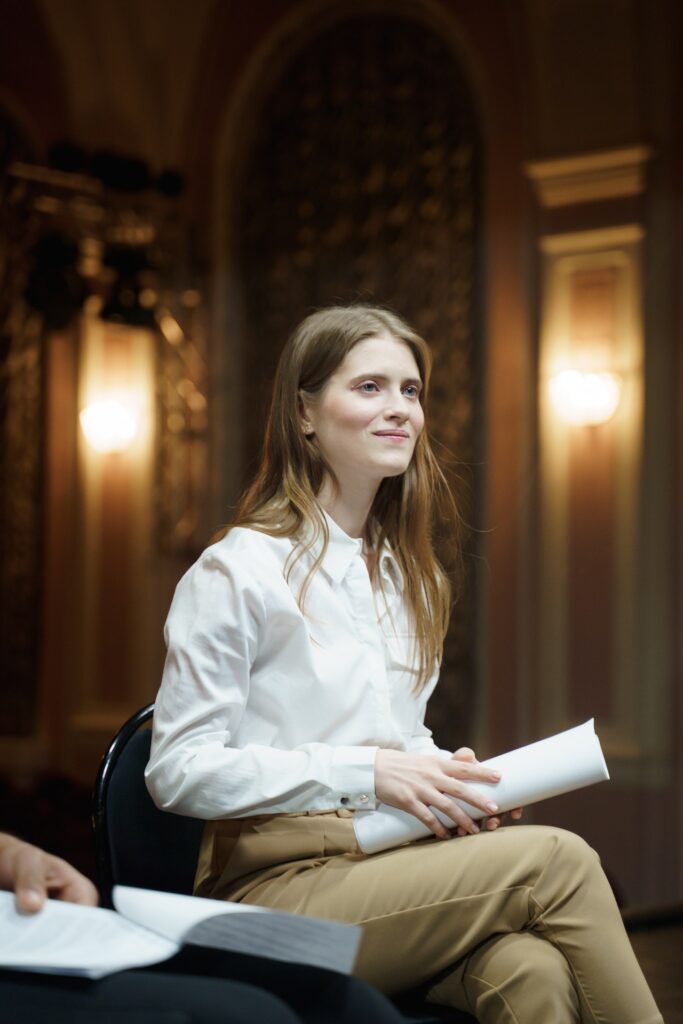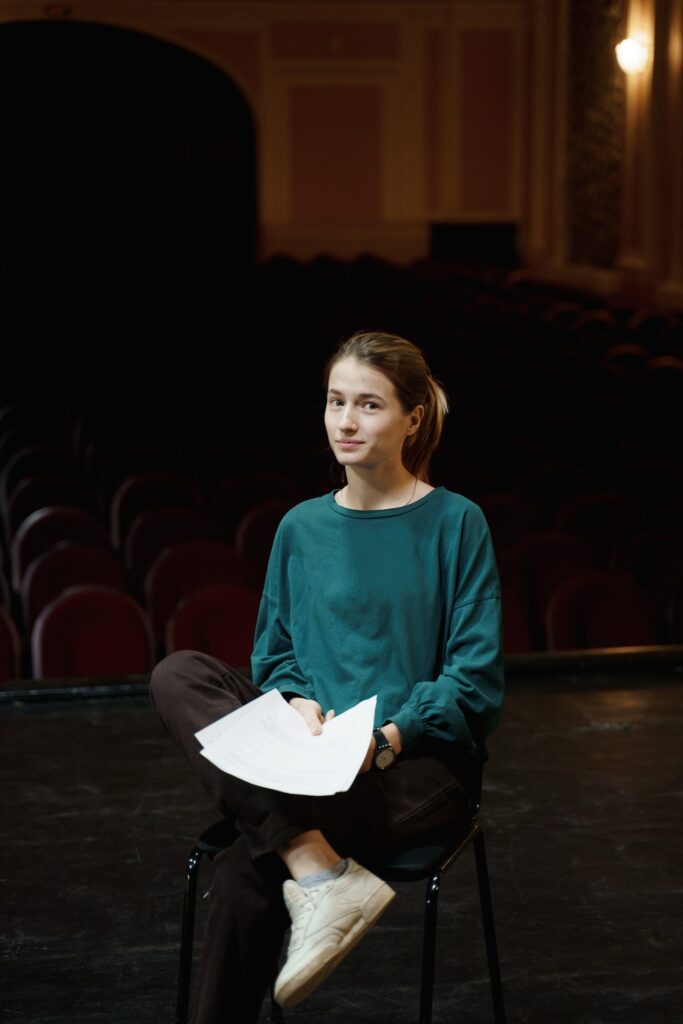In the realm of artistic expression, few platforms capture the human imagination quite like the theater arts. The stage becomes a canvas for emotions, ideas, and narratives to converge, offering a unique avenue for individuals to explore their creative depths and convey their innermost thoughts. The marriage of performance and personal expression in theater is a timeless tradition that continues to evolve, adapt, and inspire. In this article, we embark on a journey of discovery as we delve into the world of theater arts courses that not only impart valuable skills but also encourage individuals to unlock their creative potential and find their voice on the stage.
Join us as we unravel the essence of these ten theater arts courses and their role in fostering creativity and personal growth. Through this exploration, we aim to highlight the profound ways in which the performing arts empower individuals to harness their imagination, embrace vulnerability, and ultimately, craft stories that resonate with the human experience.

Here are 10 theater arts courses:
Improvisation: Improvisation is an invaluable technique that fosters the development of quick thinking and innovative problem-solving abilities. It serves as a dynamic platform to cultivate adaptability by responding to challenges spontaneously. Moreover, it contributes to the enhancement of one’s listening acumen and the honing of collaborative skills, as individuals learn to co-create narratives and scenes in real time.
For instance, within an improvisation course, students are guided through the art of crafting diverse characters, conjuring dialogues from thin air, and constructing intricate scenarios. Beyond mere entertainment, these teachings extend to the practical realm, empowering learners to utilize improvisation as a constructive tool for navigating challenges and mediating conflicts.
Acting: The realm of acting offers a profound avenue for exploring the vast spectrum of human emotions and personalities. Through embodying various characters, actors delve into the intricacies of these personas, deepening their understanding of the human psyche. This immersive experience not only facilitates the mastery of stage presence but also imparts the skill of projecting one’s voice effectively to captivate audiences.
For example, an acting course delves into script analysis, character development, and the art of memorization. By delving into these facets, students learn to breathe life into fictional roles and harness the power of voice modulation and body language to evoke genuine and resonant performances.
Voice and Speech: The art of voice and speech is a transformative journey that empowers individuals to refine their vocal prowess. This encompasses elements such as vocal projection, precise articulation, and impeccable diction. Beyond communication enhancement, this training nurtures the cultivation of an expressive and captivating speaking voice.
Consider a voice and speech curriculum that equips students with warm-up exercises to condition their vocal cords, techniques to optimize breathing patterns, and strategies to project their voices effectively. Moreover, students become versed in an array of vocal techniques, enabling them to encapsulate diverse emotions and personalities in their vocal delivery.
Movement: Movement training orchestrates a holistic development of physical coordination and self-expression through body language. This discipline facilitates a profound connection between emotions and physicality, enabling individuals to communicate narratives, emotions, and identities through gestures and posture. The culmination of these skills results in a poised and graceful stage presence.
For instance, a movement-oriented course guides students in utilizing their bodies as storytelling tools, sculpting characters through their physicality, and channeling emotions via movement. Additionally, students learn to orchestrate their physicality to conjure visually compelling performances that resonate with audiences on a sensory level.
Stagecraft: The world of stagecraft unveils the intricate machinery behind theatrical productions, encompassing elements such as lighting, set design, and costume creation. This multifaceted realm provides a comprehensive understanding of the theater’s technical aspects, elucidating how to orchestrate a visually captivating and immersive production.
Consider a stagecraft curriculum that immerses students in the art of lighting manipulation, the construction and visualization of intricate sets, and the nuances of crafting costumes that amplify character depth. Furthermore, students acquire the technical proficiency to manipulate stagecraft elements to establish specific moods and atmospheres, thus heightening the overall theatrical experience for both performers and spectators.
Directing: Directing is a masterful craft that breathes life into theatrical productions. Immersing oneself in the realm of directing fosters the evolution of a creative vision and cultivates the art of orchestrating harmonious collaborations with actors and other theater artisans.
For instance, within a directing course, students embark on a comprehensive journey that encompasses script analysis, actor casting, and scene blocking. Beyond the confines of the stage, they learn to harmonize their artistic aspirations with the technical expertise of designers and technicians, thus crafting a unified and impactful production that resonates with audiences.

Playwriting: The art of playwriting stands as a profound avenue for honing the skill of storytelling through dramatic composition. Delving into this art form enriches one’s capacity to weave intricate narratives, construct relatable characters, and craft dialogue that seamlessly weaves authenticity with engagement.
Consider a playwriting curriculum that steers students through the process of crafting a play from its inception to its conclusion. This educational journey encapsulates the nuances of character growth, plot architecture, and the finesse of crafting compelling dialogue, ultimately fostering the emergence of budding playwrights with a gift for evoking emotion and thought through the written word.
Musical Theater: Musical theater represents a harmonious confluence of theater, music, and dance, birthing a multidimensional performance art. The study of musical theater equips individuals with prowess in these three realms, culminating in versatile performers capable of captivating audiences across diverse artistic dimensions.
In a musical theater course, students delve into the triumvirate of singing, dancing, and acting, merging these components into seamless and resonant performances. Moreover, the historical panorama of musical theater and its myriad styles are explored, providing a rich backdrop against which students craft their own expressive and captivating endeavors.
Children’s Theater: Children’s theater stands as a heartwarming conduit for sharing the magic of the stage with young minds. Nurturing one’s understanding of children’s theater fosters the honing of skills in pedagogy and narrative craft, shaping future storytellers who cater to youthful imaginations.
Imagine a children’s theater curriculum that guides students through the process of creating and adapting plays tailored for young audiences. Beyond script creation, they learn the art of interaction with children and the cultivation of a nurturing environment that fuels creativity and growth.
Community Theater: Community theater serves as a vibrant channel for immersing oneself in the world of performance while forging new connections. The study of community theater nurtures the art of collaboration and teamwork, underscoring the importance of unity in the pursuit of artistic excellence.
Within a community theater course, students are primed for the intricacies of auditioning, line memorization, and on-stage delivery. Additionally, they delve into the holistic operations of community theater, delving into aspects such as fundraising and marketing, contributing to the creation of vibrant, inclusive, and engaging local artistic communities.
Conclusion
Theater can be a rewarding and enriching experience for people of all ages. Whether you are interested in acting, directing, playwriting, or any other aspect of theater, there is a course out there for you. Theater arts can help you develop your creativity, communication skills, and confidence. They can also help you build teamwork and collaboration skills. If you are looking for a way to express yourself creatively and connect with others, theater art is a great option.

